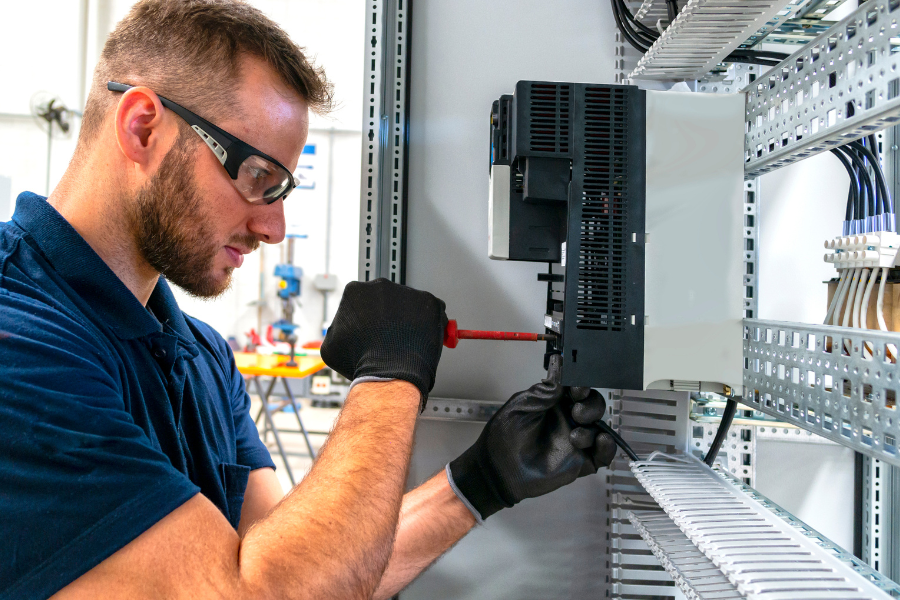Ensuring electrical safety in homes with children is paramount. Children are naturally curious and can be attracted to electrical outlets, appliances, and cords. Taking proactive measures to safeguard your home can prevent accidents and keep your family safe. This comprehensive guide offers practical electrical safety tips tailored for families with children.
Understanding the Importance of Electrical Safety
Electrical safety is crucial for preventing accidents such as shocks, burns, and fires. Educating children about the dangers of electricity and implementing safety measures can significantly reduce the risk of electrical hazards in your home.
Childproofing Electrical Outlets
One of the first steps in ensuring electrical safety is childproofing electrical outlets:
- Outlet Covers: Install outlet covers or safety plugs on all unused outlets. These prevent children from inserting objects into the outlets.
- Tamper-Resistant Receptacles (TRRs): Consider upgrading to tamper-resistant receptacles, which have built-in shutters that block foreign objects.
- Outlet Plates: Use outlet plates with sliding covers that automatically close when the outlet is not in use.
Safe Use of Electrical Appliances
Proper use and maintenance of electrical appliances are essential for electrical safety:
- Unplugging Appliances: Always unplug appliances when they are not in use. This prevents children from accidentally turning them on.
- Supervision: Never leave young children unsupervised around appliances, especially those that generate heat, such as toasters, irons, and space heaters.
- Appliance Cords: Keep appliance cords out of reach of children. Use cord shorteners or organizers to minimize the risk of entanglement.
Teaching Children About Electrical Safety
Educating children about electrical safety is a key preventive measure:
- Simple Rules: Teach children simple rules such as not touching electrical outlets, cords, or appliances without adult supervision.
- Water and Electricity: Explain the dangers of mixing water and electricity. Ensure children understand to keep electrical devices away from water.
- Emergency Procedures: Teach children what to do in case of an electrical emergency, including how to recognize hazards and seek help.
Electrical Safety in the Bedroom
Children spend a lot of time in their bedrooms, making it important to ensure these spaces are safe:
- Nightlights: Use nightlights with cool-to-the-touch LED bulbs to prevent burns.
- Lamp Safety: Ensure lamps and light fixtures are stable and cannot be easily knocked over.
- Extension Cords: Avoid using extension cords in children’s bedrooms. If necessary, secure them to the wall to prevent tripping.
Electrical Safety in the Kitchen
Kitchens are common places for electrical accidents due to the presence of water and appliances:
- Appliance Safety: Ensure all appliances are in good working condition. Replace damaged cords or appliances immediately.
- Cord Management: Keep appliance cords away from the edges of counters where children can pull them down.
- Wet Hands: Teach children never to touch electrical appliances with wet hands.
Outdoor Electrical Safety
Outdoor electrical safety is equally important, especially if your children play outside:
- Outdoor Outlets: Ensure all outdoor outlets have Ground Fault Circuit Interrupters (GFCIs) installed. GFCIs shut off electrical power if a ground fault is detected.
- Electrical Cords: Use only weather-resistant electrical cords designed for outdoor use. Keep them away from high-traffic areas to avoid tripping.
- Pools and Water Features: Keep all electrical devices and cords away from pools, fountains, and other water features.
Electrical Safety and Holiday Decorations
Holiday decorations can pose additional electrical safety risks:
- Inspect Decorations: Before use, inspect all holiday lights and decorations for damaged cords or plugs.
- Outdoor Lights: Use only outdoor-rated lights for exterior decorations. Ensure they are plugged into GFCI outlets.
- Timer Controls: Use timer controls to automatically turn off holiday lights, reducing the risk of overheating.
Key Electrical Safety Equipment
Having the right electrical safety equipment in your home can prevent accidents:
- Circuit Breakers and Fuses: Ensure your home’s electrical system is up to code with functioning circuit breakers and fuses.
- Smoke Alarms: Install smoke alarms on every level of your home and test them monthly.
- Fire Extinguishers: Keep a fire extinguisher readily accessible in the kitchen and other areas prone to electrical fires.
Quick Tips
- Install outlet covers or tamper-resistant receptacles to childproof electrical outlets.
- Always unplug appliances when not in use and keep cords out of children’s reach.
- Teach children about the dangers of electricity and simple safety rules.
- Use nightlights with cool-to-the-touch bulbs and secure lamps in children’s bedrooms.
- Ensure outdoor outlets have GFCIs installed and use weather-resistant cords.
Addressing Electrical Hazards in Older Homes
Older homes may have outdated wiring and electrical systems, posing increased risks:
- Inspection: Have a licensed electrician inspect your home’s electrical system for potential hazards.
- Upgrades: Upgrade old wiring and panels to meet current safety standards.
- Replace Old Outlets: Replace old, worn-out outlets with new tamper-resistant ones.
Planning for Emergencies
Being prepared for electrical emergencies can save lives:
- Emergency Numbers: Keep a list of emergency numbers, including your electrician’s contact information, near your phone.
- First Aid: Learn basic first aid for electrical burns and shocks.
- Evacuation Plan: Have an evacuation plan in place and practice it regularly with your family.
Comparison of Electrical Safety Devices
| Device | Function | Recommended Use |
|---|---|---|
| Outlet Covers | Blocks access to unused outlets | All unused outlets |
| Tamper-Resistant Receptacles | Prevents foreign objects from being inserted | Children’s rooms and common areas |
| Ground Fault Circuit Interrupters (GFCIs) | Shuts off power if a ground fault is detected | Kitchens, bathrooms, and outdoors |
Contact Us
For more information about electrical safety and to ensure your home is properly safeguarded, Contact US Electric at:
Phone: 732-646-4454
Email: info@use-corp.com
By implementing these tips and educating your children about the dangers of electricity, you can create a safer home environment. Electrical safety is a shared responsibility, and with the right precautions, you can prevent accidents and keep your family safe.


